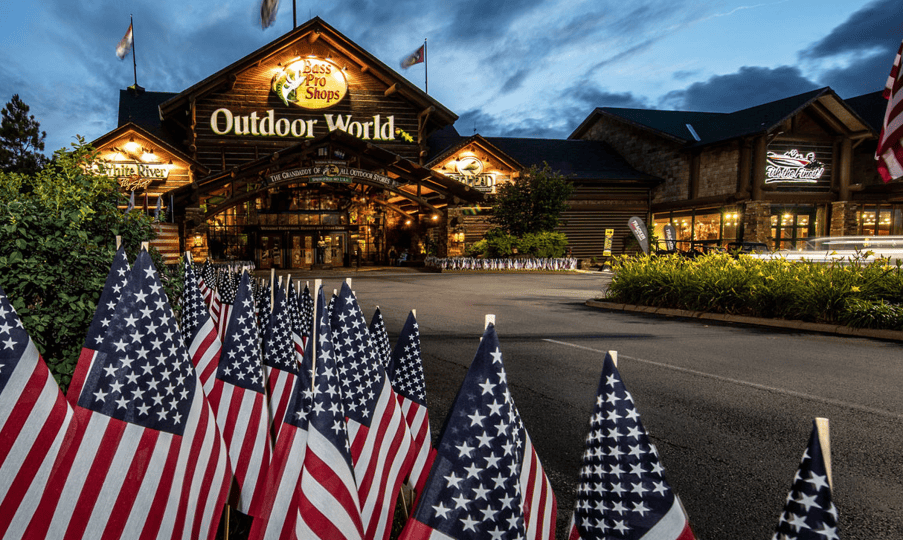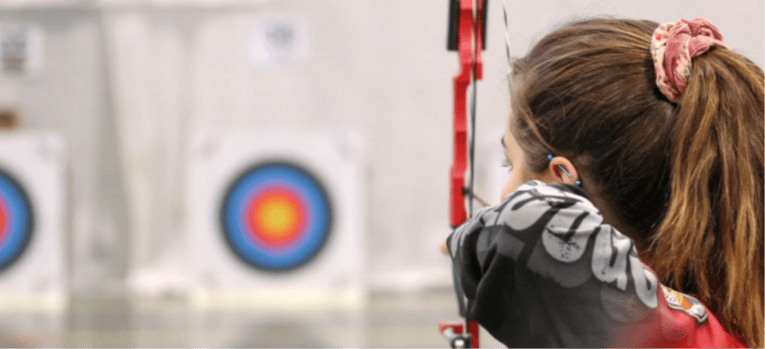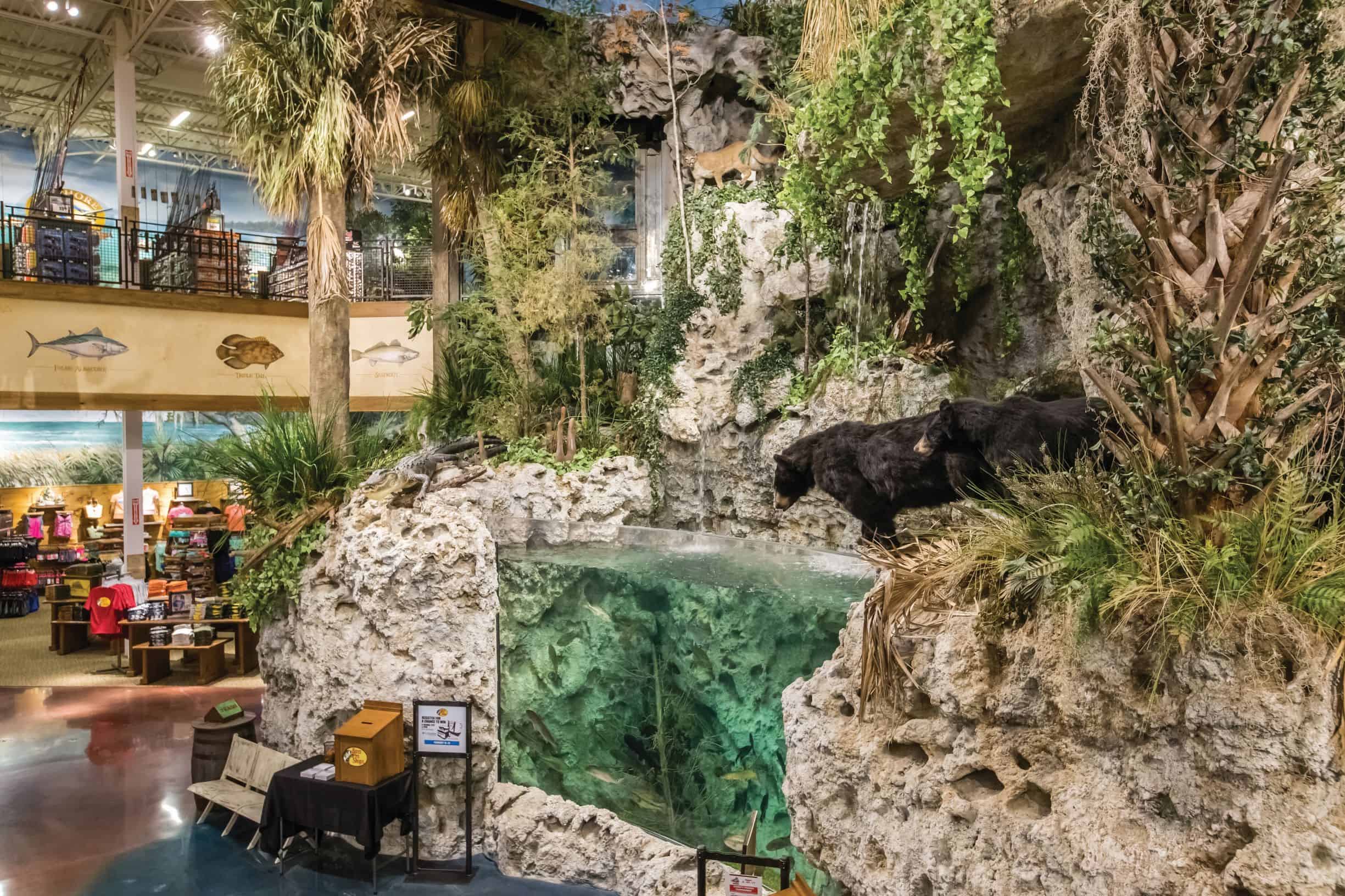
Saving Nakoma, the cancer-stricken bass
Innovative techniques demonstrate the depths of animal care
Every cancer survivor has a story to tell. Nakoma’s is more unusual than the rest. That’s because she is an 11-pound largemouth bass.
For the past 4 years, Nakoma has joined other native fish on display at Bass Pro Shops in Daytona Beach, Florida. Like all Bass Pro Shops and Cabela’s locations, the aquarium at Daytona Beach is a focal point of the sprawling outdoor store and a “must-see” experience for thousands of guests each year.
“Creating an emotional connection and appreciation for the incredible wildlife all around us is an important first step in instilling a lifelong love of the outdoors, which is what we aim to do every day.”
Here, she plays an important role educating the public about native ecosystems and inspiring guests to develop a bond with nature.
“Displaying native fish in our aquariums create a sense of awe and wonder with guests of all ages,” said Blayk Michaels, Manager of Live Exhibits for Bass Pro Shops and Cabela’s. “Creating an emotional connection and appreciation for the incredible wildlife all around us is an important first step in instilling a lifelong love of the outdoors, which is what we aim to do every day.”
With such an important job, it’s vital the fish receive the best possible care, a reflection of Bass Pro’s deep respect for the natural world.
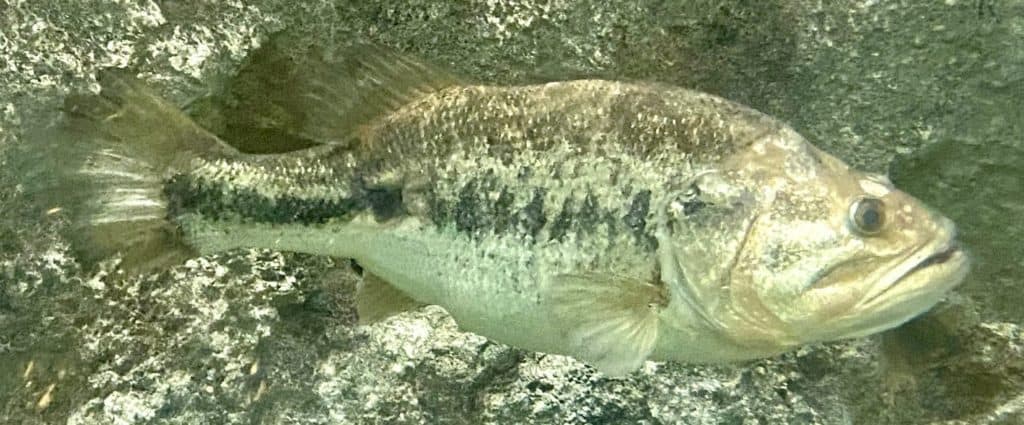
And so, when the animal care team noticed a life-threatening growth on Nakoma’s right side during a routine checkup back in 2017, Blayk and the team jumped into action.
Working alongside animal care specialists, veterinarians and other support staff, the team contacted the University of Florida – one of the nation’s leaders in aquatic veterinary care – to perform surgery and cryosurgery to remove the tumor. A year later, a second surgery was done to remove a smaller tumor. After each procedure, the team closely monitored the bass, careful to detect any concerning signals.
Today, Nakoma is cancer-free. The only reminder is a small indentation in her side, from where the tumor was removed.
“She is doing great,” Blayk said. “She’s not just living, she’s thriving. This is something that has just never been done.”
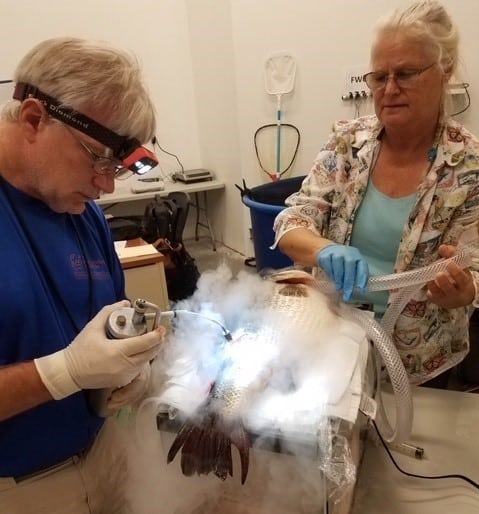
The groundbreaking techniques employed to support Nakoma have led to interest on an international level. University partners are sharing their work in veterinary journals and conferences in the U.S. and around the world. Last fall, Blayk participated in a virtual conference based in the Middle East to discuss the care provided.
“We’re happy to share our experiences with others in the field,” he said. “Our first concern is always the health and well-being of the animals, but it’s also validating to contribute to the collective knowledge of aquatic animal care.”
As with all living populations, the care never stops.
Down the road from Nakoma’s home in Daytona Beach, Adira, a 7-pound largemouth bass, is on display at the Bass Pro Shops in Orlando, Fla. Estimated to be about 16 years old, she was stricken by a different type of cancer, a sheath sarcoma, that is extremely difficult to get rid of.
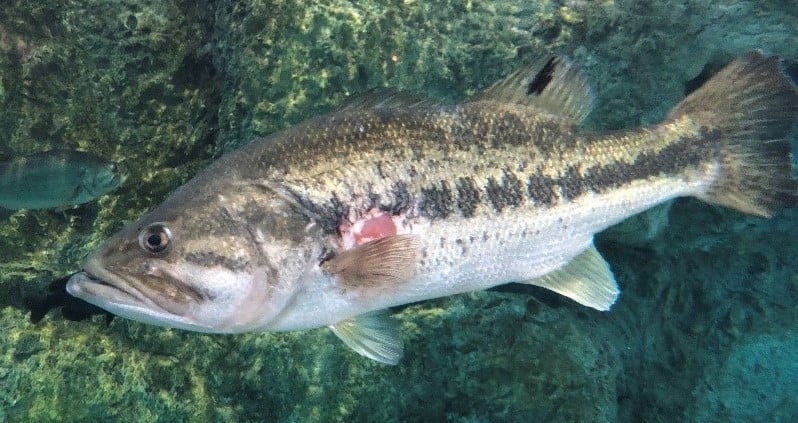
To determine the path forward, the team used ultrasound, done with Adira in water and kept still for an extended period. Ultimately, the care team removed the tumor using a surgical procedure that included cutting out the main tumor and the use of liquid nitrogen cryotherapy to freeze any microscopic cancerous projections of cells, followed by a skin graft from a deep sea cod, a technique adapted from burn treatments of humans and wildlife.
This technique had never been successfully performed on a fish, has been presented at multiple conferences and has cut the time of surgical wound healing in half.
The cancer has returned, unfortunately, and the fight continues.
“Adira is still battling, and we’re proceeding because there’s still a lot to learn,” Blayk said. “It’s the partnerships that we develop with the states and the universities that encourage us to keep trying.”
Like any fishing trip, there are no guaranteed happy endings, but hope remains.
Anyone can visit the store and observe the tranquil scene: Nakoma peacefully swimming by amongst the vegetation, kids and anglers alike gazing up in wonder, and a compassionate commitment to care now as translucent and invisible as the water itself.

